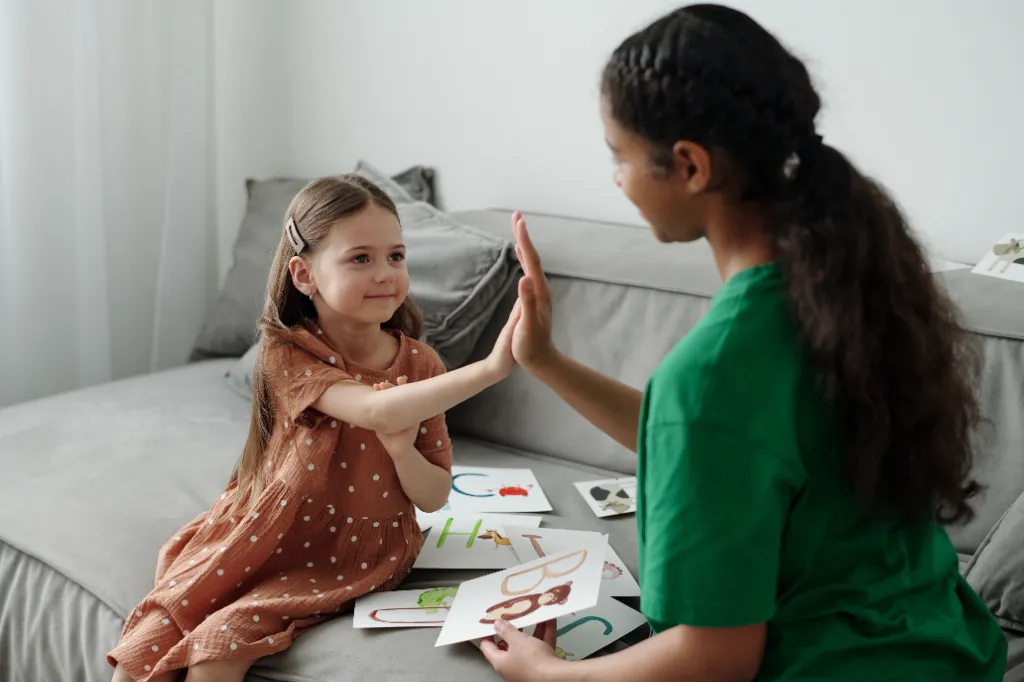Global Developmental Delay (GDD) and its Implications for Children
Global developmental delay is a term used to describe a delay in a child’s development across multiple domains, including cognitive, social, emotional, and physical skills. Typically identified before age five, GDD can affect a child’s ability to communicate, learn, and interact with the world around them. The implications of GDD are profound, as these delays can lead to challenges in education, social integration, and overall quality of life. Understanding GDD is crucial for parents, educators, and healthcare professionals, as early diagnosis and intervention can significantly affect a child’s developmental trajectory.
The implications of GDD extend beyond the child alone, impacting families, communities, and educational systems. It’s important for families to be supported in assisting their child’s development, which may involve access to various resources and training. Moreover, as children transition into school settings, educators must adapt teaching methods to accommodate diverse learning needs. This necessity prompts a broader conversation about inclusivity and the importance of fostering environments where all children, regardless of their developmental challenges, can flourish and reach their full potential.
Addressing global developmental delay requires a collaborative approach involving parents, healthcare providers, and educators working together to create tailored strategies for each child’s unique needs. Early intervention services, including speech therapy, occupational therapy, and early childhood education programmes, play a vital role in supporting children. By embracing a proactive stance and prioritising individualised care, we can pave the way for children with GDD to develop essential skills and enhance their quality of life.
Importance of Early Intervention
Early intervention is crucial for children with global developmental delays as it significantly influences their long-term outcomes. When developmental delays are identified early, children can receive targeted support that addresses their unique needs. Additionally, children are more likely to develop effective communication skills, which are essential for building relationships and engaging with peers. This social integration is vital for fostering self-esteem and reducing potential feelings of isolation.

By prioritising early evaluation and intervention, healthcare providers can ensure that children receive the necessary resources to thrive, enabling them to overcome challenges and achieve their full potential.
The Role of Speech Therapy in Supporting Children with GDD
Speech therapy is pivotal in supporting children with global developmental delays by addressing communication challenges. Children with GDD frequently experience significant delays in speech as well as language, which can impact their ability to express needs, engage socially, and participate in educational settings. Speech-language pathologists (SLPs) are trained to assess these communication challenges and develop individualised treatment plans tailored to each child’s needs. Through various therapeutic techniques, SLPs can help children improve their speech clarity, language comprehension, and overall communication abilities.
One of the fundamental aspects of speech therapy and global developmental delay is using play-based and interactive approaches. SLPs often incorporate games, storytelling, and hands-on activities to make learning enjoyable and engaging for young children. This playful methodology captures the child’s attention and fosters a natural learning environment where communication skills can flourish. Techniques such as modelling language, using visual aids, and encouraging turn-taking in conversations help children develop essential skills, both gross motor skills and fine motor skills, in a supportive and motivating context. As children progress in speech therapy, they become more confident in their communication, positively impacting their social interactions and emotional well-being.
Speech therapy is not just about direct interactions with the child; it’s also about educating and empowering parents and caregivers. SLPs work closely with families, recognising their crucial role in reinforcing communication skills at home. They provide guidance on practical strategies and activities that can be incorporated into daily routines. This collaborative approach ensures that the benefits of speech therapy extend beyond the clinical setting, fostering an environment conducive to ongoing language development.
Techniques Used in Speech Therapy
Speech therapy employs diverse techniques specifically designed to support children with global developmental delays. These techniques are rooted in the understanding that effective communication is crucial for a child’s social interaction, academic success, and emotional well-being. By utilising tailored approaches such as modelling, play-based activities, and visual aids, SLPs can create personalised therapy plans that engage children and promote language acquisition.
Modelling: Demonstrating Correct Speech Patterns
Speech therapy offers a variety of techniques tailored to the unique needs of children with global developmental delays. One of the foundational methods in speech therapy is modelling, where the therapist demonstrates appropriate speech and language skills for the child to observe. This technique helps children learn new vocabulary and sentence structures by providing examples of effective communication. Additionally, imitation is encouraged, allowing children to practice sounds and words in a supportive environment. This process reinforces their learning and builds confidence in their communication abilities.
Expansion: Adding Complexity to a Child’s Spoken Language
Another effective technique is expansion, where the therapist takes a child’s utterance and expands it into a more complex sentence. For example, if a child says “dog,” the therapist might respond, “Yes, the big brown dog is running.” This method enriches the child’s language experience and helps them understand sentence structure and context. Repetition is also a key strategy, as it reinforces learning through practice. Children can improve their pronunciation and recall by repeating words and phrases, making it easier for them to use language in everyday situations.
Parallel Talk: Narrating the Child’s Actions to Reinforce Vocabulary
Parallel talk is a powerful technique used in speech therapy to support children with global developmental delays, particularly in enhancing their language comprehension and expressive skills. This strategy involves the therapist or caregiver narrating the child’s actions and experiences in real time, providing a running commentary that reflects what the child is doing or seeing.
One of the critical benefits of parallel talk is that it helps children with GDD connect words with actions, fostering a better understanding of language in context. As the therapist describes what the child is doing, it reinforces vocabulary acquisition and comprehension. This method allows children to hear language meaningfully, making internalising new words and phrases easier. Notably, parallel talk does not require the child to respond immediately, alleviating any pressure they may feel to communicate verbally, which can be particularly beneficial for children struggling with expressive language skills.
It plays a crucial role in creating a low-stress environment for children with GDD. As the child becomes more familiar with the language used to describe their actions, they may be motivated to respond, either verbally or through gestures, thus practising their communication skills in a comfortable and safe setting. This technique not only enhances language development but also builds the child’s confidence in their ability to express themselves, ultimately contributing to their overall growth and development. By incorporating parallel talk into therapy sessions and everyday interactions, caregivers can create a rich linguistic environment that supports children with GDD in their journey toward effective communication.
Visual Supports: Using Pictures and Gestures to Aid Comprehension
Play-based activities are integral to speech-sound development therapy for children with GDD, as they create a fun and engaging learning environment. Therapists often use games, storytelling, and interactive play to stimulate language development. For instance, picture books to discuss characters and events encourage vocabulary growth and comprehension skills. Additionally, visual aids and hands-on activities can enhance understanding and retention of language concepts. By incorporating these techniques, speech therapy addresses communication challenges and fosters a positive and enjoyable learning experience, ultimately supporting the child’s overall development and social integration.
Benefits of Speech Therapy for Children with GDD
Speech therapy offers many benefits for children with global developmental delays, serving as a vital tool in addressing communication challenges. By enhancing speech and language skills, speech-language therapists provide individualised support that can significantly improve a child’s ability to express themselves, comprehend language, and engage socially. As children with GDD develop their language abilities, they gain greater confidence and independence, enabling them to navigate their world more effectively.
Improved Communication Skills
One of the most significant benefits of speech therapy is enhancing communication skills. Effective communication is foundational to a child’s ability to express themselves and connect with others. Through targeted speech therapy interventions, children learn to articulate their thoughts and feelings more clearly, helping them convey their wants and needs.
Moreover, improved communication skills can impact a child’s academic performance. As they become more adept at expressing themselves, they are better equipped to participate in classroom discussions and engage with educational materials. However, it’s essential for educators to understand each child’s unique challenges and provide personalised learning support to foster their growth.

Ultimately, working with a speech therapist who understands the impact of a language delay and enhances communication skills is highly beneficial and empowers children with GDD to navigate their world with greater ease and confidence.
Enhanced Social Skills
One of the critical benefits of speech therapy for children is the enhancement of social skills. Effective communication is crucial for forming relationships, understanding social cues, and participating in group activities, all essential components of social interaction. Speech therapy helps children develop these skills by giving them the tools to express themselves and engage with others more effectively.
Through structured therapy sessions, children learn to initiate conversations, take turns in dialogue, and respond appropriately to questions or comments from peers. Techniques such as role-playing, storytelling, and group activities are often utilised to create real-life social scenarios where children can practice their skills in a safe and supportive environment.
Additionally, speech therapy helps children understand and interpret non-verbal cues, such as body language and facial expressions. This understanding is crucial for navigating social situations and building meaningful connections.
Increased Confidence and Independence
One of the meaningful benefits of speech therapy is its potential to enhance confidence and foster greater independence in children with global developmental delay. As children learn to articulate their ideas and feelings, they may experience a boost in self-esteem, which can empower them to express their needs more effectively. While many children with GDD rely on caregivers to interpret their needs or facilitate interactions, developing communication skills can help them engage more actively in their environments.
However, it’s important to acknowledge that progress may be gradual and that children may still encounter challenges in communication. Each child’s journey is unique, and while some may achieve greater independence in expressing themselves, others may continue to benefit from support. By focusing on their individual strengths and providing tailored encouragement, speech therapy can help children with GDD navigate their world with increased confidence and a sense of agency.
Collaboration Between Care Givers and Speech Therapists
Collaboration between caregivers and speech therapists is essential for maximising the effectiveness of speech therapy for children with global developmental delay. This partnership creates a supportive environment where strategies and techniques learned during therapy sessions can be reinforced and practised in everyday situations. By actively involving parents and caregivers in the therapeutic process, speech-language therapists ensure that the skills developed in therapy are integrated into the child’s daily life, enhancing their learning and communication opportunities.
Effective collaboration begins with open communication between caregivers and therapists. Caregivers provide valuable insights into the child’s unique needs, preferences, and behaviours, which can inform the development of personalised therapy goals. In turn, therapists equip caregivers with practical strategies and resources to support their child’s communication development at home.
In-house Therapy Team with Unique Community Services
At Unique Community Services we have developed an in-house therapy team of Occupational Therapists, Positive Behaviour Support (PBS) Specialists and Speech and Language Therapists that can deliver urgent and holistic support.
Along with our PROACT-SCIPr experts, we teach people the right skills to gain greater independence. Our team can help deliver person-centred care, reduce restrictive practices, utilise various communication strategies and mindfulness techniques, and create a safe environment.
We truly believe that therapy combined with a holistic and person-centred approach can significantly build people’s confidence and improve their well-being.
Witness the impact of humanised care by reading our case studies or contact us for more information.

